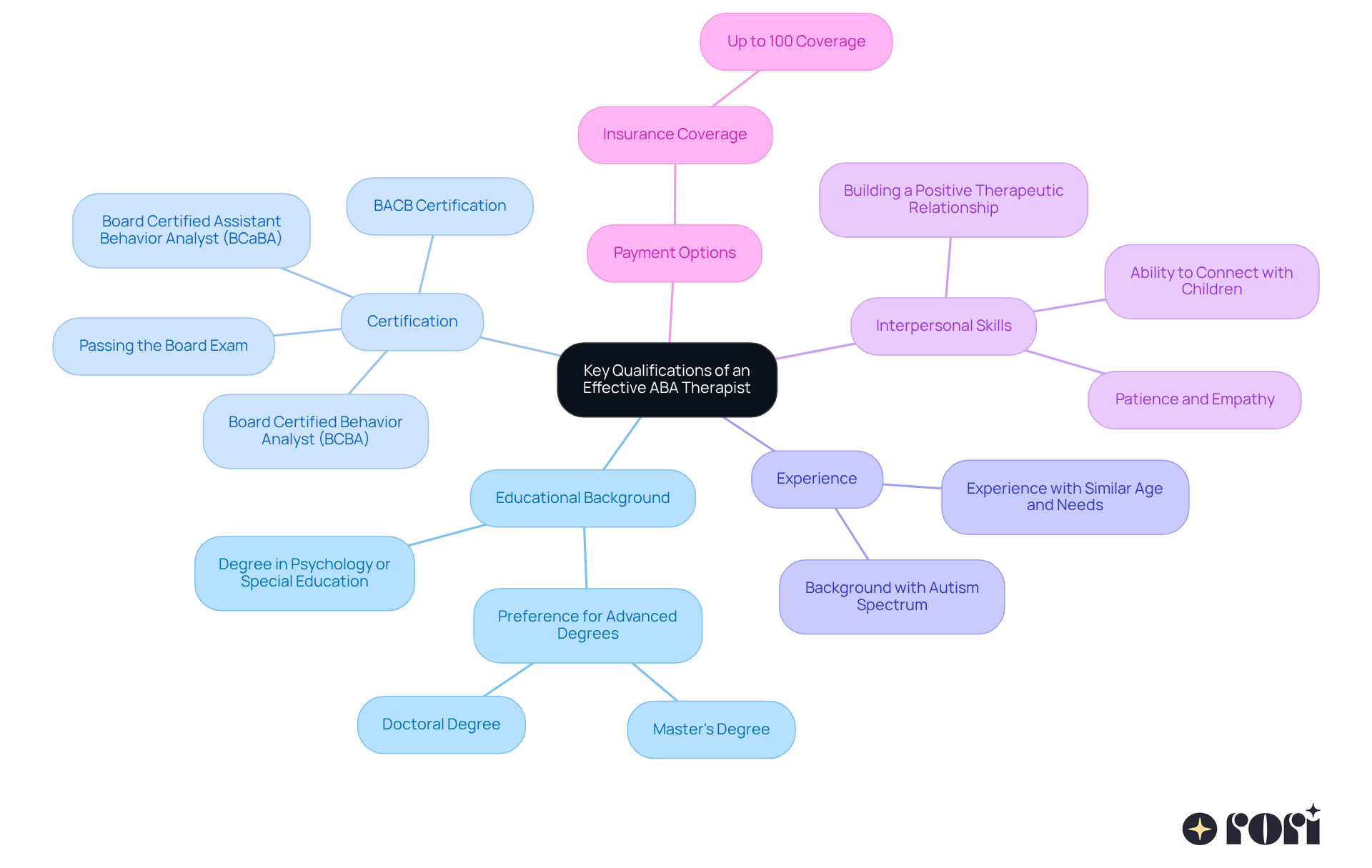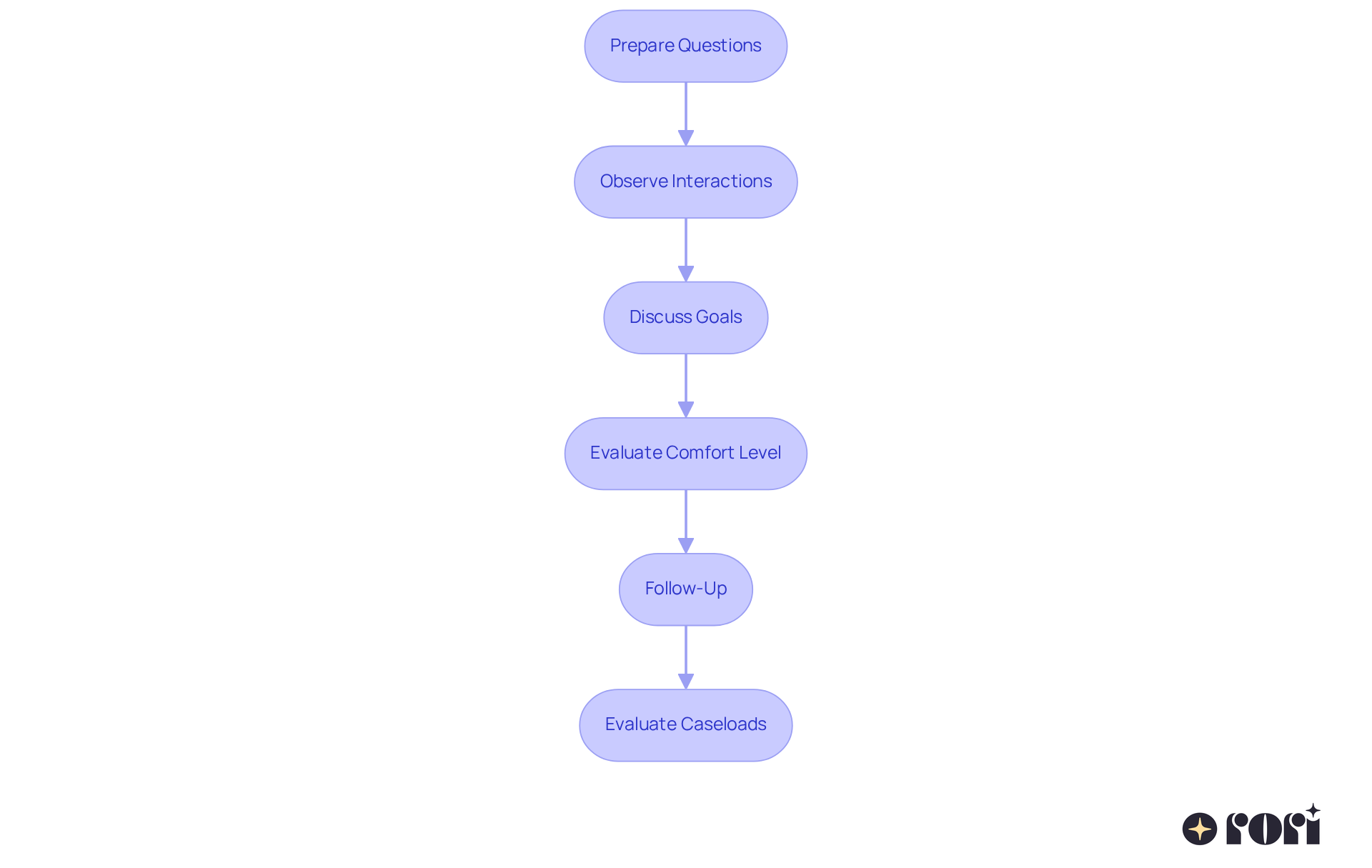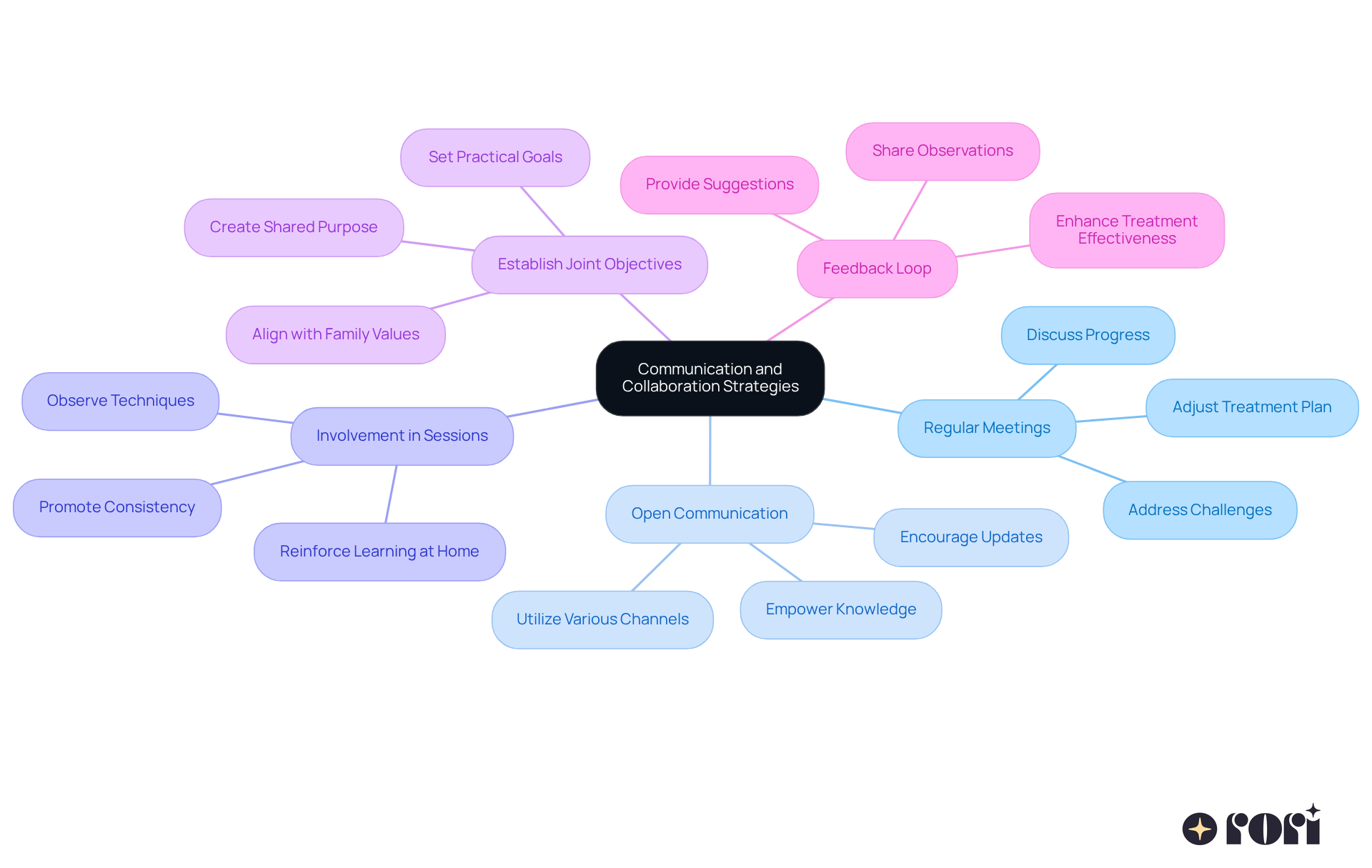Choosing the right school ABA therapist for your child can feel overwhelming, right? It’s important to think about their educational background, certification, and experience with children like yours. And don’t forget about those interpersonal skills! You want someone who can provide effective and compassionate care.
These qualifications are not just boxes to check off; they’re essential for crafting treatment plans that truly resonate with your child. A strong therapeutic relationship can make all the difference in supporting your child's growth and development through ABA therapy.
So, let’s explore this together! Finding the right fit can set the stage for a positive experience, and we’re here to help you every step of the way!
Choosing the right school ABA therapist for your child can be a pivotal decision in their developmental journey. With the proven benefits of Applied Behavior Analysis (ABA) therapy—enhancing essential skills and modifying challenging behaviors—many parents find themselves facing the daunting task of selecting an effective professional.
So, what key qualifications should you look for? And how can you assess compatibility to ensure the best fit for your child's unique needs? Exploring these questions can lead to informed choices that significantly impact your child's growth and well-being. Let’s explore this together!
A school ABA therapist utilizes Applied Behavior Analysis (ABA) intervention, a scientifically validated method, to enhance specific behaviors and skills in individuals with autism. It focuses on reinforcing positive behaviors while gently reducing negative ones. Let’s explore some key benefits of ABA therapy together:
Understanding these benefits empowers you to advocate for your child's needs and make informed choices regarding therapy options. We’re here to help you every step of the way!

When you're on the journey of choosing an ABA therapist for your child, there are a few key qualifications to keep in mind that can really make a difference:
Also, it’s worth having a chat with your provider about payment options. Many insurance plans cover up to 100% of ABA treatment, which can make it much more accessible for your family.
These qualifications are vital in ensuring that your child receives the effective and compassionate care they deserve. Let’s explore this together!

To effectively assess compatibility with potential ABA therapists, consider these friendly steps:
Prepare Questions: Start by crafting a list of questions to guide your interview. Focus on the school ABA therapist's approach to therapy, their experience, and strategies for managing challenging behaviors. Don’t forget to ask about the qualifications of the staff, especially how many licensed Board Certified Behavior Analysts (BCBAs) are on the team. Their expertise is key in creating adaptive treatment plans tailored to your unique needs.
Observe Interactions: If you can, watch how the professional interacts with your child. Pay close attention to their communication style and your child's reactions. These observations can offer valuable insights into their compatibility. A school ABA therapist who adjusts their methods based on your child’s responses is crucial for effective therapy.
Discuss Goals: Have a chat about your child's specific needs and therapeutic goals. A skilled professional should be able to clearly explain how they plan to address these objectives within their treatment framework. Also, understanding how parent or caregiver participation with the school ABA therapist is woven into treatment plans is vital, as your involvement is essential for successful ABA practices.
Evaluate Comfort Level: Reflect on how comfortable both you and your child feel with the therapist. Building a positive rapport is essential for effective therapy provided by a school ABA therapist. It’s also helpful to discuss strategies for handling meltdowns, as knowing these techniques can empower you and your family to support your child’s behavioral objectives.
Follow-Up: After the interview, take some time to reflect on your impressions and discuss them with your child, considering their feelings about the professional. Also, inquire about training and career advancement opportunities for the staff. This shows the organization’s commitment to quality and continuous development, which is crucial for effective interventions.
Evaluate Caseloads: Finally, ask about the number of clients each practitioner oversees. Smaller caseloads often lead to better oversight, personalized interventions, and improved results, ensuring your child receives focused care. This organized approach helps you choose a school ABA therapist who not only is qualified but also aligns well with your family's unique personality and needs.
At Rori Care, we’re dedicated to neurodiversity, and our clinical leadership is committed to fostering an inclusive environment that supports all young individuals. Early Intensive Behavioral Intervention (EIBI) has proven effective in enhancing learning, verbal, and social skills in youth with autism, making it a vital part of our approach. Let’s explore this journey together!

To foster effective communication and collaboration with your child's ABA therapist, let’s explore some friendly strategies together:
Regular Meetings: Schedule consistent meetings to chat about your child's progress, challenges, and any tweaks needed in the treatment plan. This keeps you in the loop and helps you make informed decisions that positively impact your child's development.
Open Communication: Keep those lines of communication open! Whether it’s through emails, phone calls, or messaging apps, encourage the counselor to share updates and insights regularly. This way, you’ll be empowered with knowledge about ABA principles and strategies.
Involvement in Sessions: If you can, join in on therapy sessions! Being present lets you observe the techniques used and reinforces learning at home, enhancing your ability to provide the right support and promote consistency.
Establish Joint Objectives: Work together with the counselor to set practical and attainable goals for your child. Make sure these objectives align with your family's values and priorities, creating a shared sense of purpose in your child's progress.
Feedback Loop: Create a feedback loop where you and the therapist can share observations and suggestions. This collaboration enhances the effectiveness of the treatment and contributes to better behavioral outcomes.
By establishing these strategies, you can create a supportive environment that maximizes your child's growth and development through ABA therapy. We’re here to help you every step of the way!

Choosing the right school ABA therapist for your child is such an important decision! It can truly shape their development and overall well-being. By getting to know the principles of Applied Behavior Analysis (ABA) therapy, you can advocate effectively for your child’s needs and find a therapist who resonates with your values and goals.
When selecting an ABA therapist, there are a few key aspects to keep in mind:
It’s vital to conduct thorough interviews, observe interactions, and establish open lines of communication. By focusing on personalized treatment plans and measurable goals, you can ensure your child receives the highest quality of care tailored just for them.
Investing time and effort into this choice creates a collaborative environment that truly enhances your child’s growth and development. By actively participating in the therapy process and keeping those lines of communication open with the therapist, you’re building a supportive network that not only benefits your child but also empowers your entire family. Let’s explore this together!
What is ABA therapy?
ABA therapy, or Applied Behavior Analysis, is a scientifically validated method used to enhance specific behaviors and skills in individuals with autism by reinforcing positive behaviors and gently reducing negative ones.
What are the key benefits of ABA therapy?
Key benefits of ABA therapy include skill development, behavior modification, personalized treatment, measurable goals, evidence-based strategies, and a data-driven approach.
How does ABA therapy help with skill development?
ABA therapy helps children learn essential life skills such as communication, social interactions, and self-care, enabling them to engage confidently with peers and express their needs.
In what way does ABA therapy modify behavior?
ABA therapy effectively reduces challenging behaviors by teaching alternative, positive behaviors, leading to improved interactions and reduced frustration for everyone involved.
How is treatment personalized in ABA therapy?
Each individual receives a tailored treatment plan from a school ABA therapist based on their unique needs and goals, ensuring effective outcomes through individualized planning.
What role do measurable goals play in ABA therapy?
Clear, measurable goals for behavior change and skill development are established with the help of a school ABA therapist, allowing for progress tracking and providing peace of mind as growth is observed.
What types of strategies are used in ABA therapy?
The school ABA therapist utilizes evidence-based strategies grounded in the latest research to apply the most effective methods for behavior change, ensuring optimal support for the child.
How is progress monitored in ABA therapy?
Progress is continuously monitored through data collection by the school ABA therapist, allowing for necessary adjustments to the treatment plan. Advanced AI technology also facilitates automatic progress report generation, enhancing efficiency and care quality.
How can parents engage in their child's ABA therapy?
Parents can actively engage in their child's behavioral goals through informed involvement, supported by the continuous monitoring and data-driven approach of the school ABA therapist.